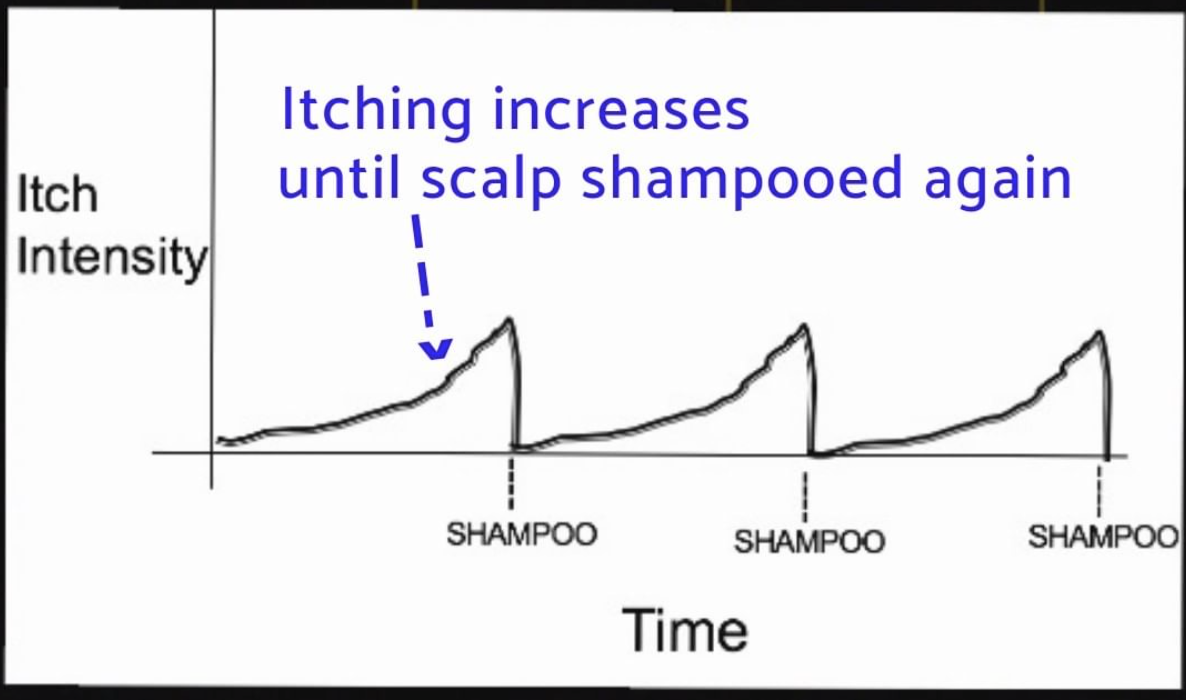Itching Patterns in Patients with Seborrheic Dermatitis.
Itching in Seborrheic Dermatitis
Seborrheic dermatitis (SD) is a common scalp condition that is closely related to “dandruff.” The scalp is often itchy and appears a bit red. The yeast Malassezia is thought to play a key role in the development of SD.
The scalp in patients with SD increasingly becomes greasy as the days go by without washing the hair. Patients with seborrheic dermatitis often find their scalp and hair looks and feels great immediately after the hair is washed. If they go a day or two without washing, the itching increases and so does the greasiness and oiliness of the scalp. Many patients with seborrheic dermatitis just intuitively come to know that washing their hair daily (or at minimim every other day) keeps the itching and greasiness to a minimum.
Of course, treatment of the seborrheic dermatitis with anti dandruff shampoos (and rarely a mild topical steroid) is the optimal strategy for managing SD and can eventually allow the patient to return back to less frequent shampooing should this be their preference.
Does seborrheic dermatitis cause hair loss?
Seborrheic dermatitis can cause hair shedding and reduced density if it is bad enough. For most people with a diagnosis of seborrheic dermatitis though, the seb derm is NOT the reason for their hair loss. Dr Pierard- Franchimont and colleagues have done very interesting research in the area of seborrheic dermatitis and dandruff. They showed about 10 years ago that the more seborrheic dermaitits a person has, the more shedding (telogen effluvium) a person will experience. This is important information to know because it tells us that individuals with severe seborrheic dermatitis are likely to have a severe telogen effluvium. Dr Pierard Franchimont and others have also shown data that the inflammatory reaction can even accelerate male balding in some cases making it important to aggressively treat seborrheic dermatitis in patients with hair loss.
There is no doubt about the relationship between seborrheic dermatitis and shedding. Companies that manufacture dandruff shampoos study shedding patterns to determine if their shampoo is working. Anti-dandruff shampoos can reduce shedding. In summary 1) most of thr time seb derm is not the main reason for the patient’s hair loss. 2) severe cases of SD do cause hair loss in the form of increased shedding and may actually help accelerate the speed of the main reason for the loss.
This article was written by Dr. Jeff Donovan, a Canadian and US board certified dermatologist specializing exclusively in hair loss.

